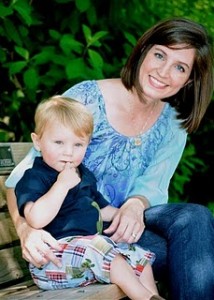Guest post by Kristy Brown, Northwest Arkansas speech language pathologist, Arkansas Regional Therapy Services
As I travel to see children for speech and language services, mothers or teachers will often question me regarding typical speech and language development for children.
One very common question I have received this summer is:
“My two year old is not talking, but my pediatrician does not seem concerned. I was told that we can re-visit this concern at their three year check up and decide then whether a speech-language evaluation is warranted”.
As a Speech Language Pathologist, I see Early Intervention as an important key to communication success! Often, in classrooms, I see frustration (sometimes in the form of biting or tantrums) due to delays in receptive and or expressive language and delayed social skills.
In response to the concern quoted above, I think there are several things to keep in mind:
- Parent Concern. As a parent, if something doesn’t feel right, do not feel bad about getting a second opinion. You may not have the same training or knowledge as a speech pathologist, but you have the advantage of knowing your own child better than anyone else on earth, and therefore your views and insights are extremely important. EARLY INTERVENTION is the key here. The earlier a delay is caught the better! Speech and Language evaluations are painless. 🙂Actually children often find them very fun. They want to come back and ‘play’ and are very heartbroken when the evaluation is over.
- Age.Once a child is 2, you will not have another well child check up until they are 3. So, in my opinion, waiting an entire year is a long time when there might be possible developmental delays. Our state has a wonderful Early Intervention program that allows you to obtain a speech_-language evaluation at no charge!
- Family history.This is very important if an older sibling has a history of speech/language delay or a diagnosis such as Autism. It is wise to stay in the loop of typical development for your other children as well. Your child may also have an existing genetic diagnosis that could have possible effects on speech and language, which you would want to keep documented for evaluation purposes.
What areas might a Speech Language Pathologist evaluate?
• Production of Speech– Production is the ability to mechanically produce speech sounds and is also known as articulation. You might ask: Has he developed the necessary control of the muscles of his tongue and lips? Does he still need to learn how to produce certain speech sounds? Which ones? Is he understood by others?
• Comprehension– Your child’s comprehension of speech is their ability to understand language. You might ask: Can he respond to verbal directions? Does he understand new words readily? Does he respond to questions appropriately?
• Expression- Expressive language is the ability to express your thoughts/language. You might ask: How well does he convey his ideas to others? Does he use any grammatical rules (like rules of word order)? Does he relay his messages clearly?
• Social– Social language is how our child functions socially and is also known as Pragmatics or Social Skills. You might ask: Does he get along with peers? Does he play with peers and toys appropriately? Does he demonstrate appropriate social languages skills such as responding to his name, saying hi/bye, eye contact, and following classroom rules with the group? Does he pick up on social cues such as tone of voice or facial expressions? Does he understand jokes?
• Feeding/ Swallowing– Feeding and swallowing can encompass skills such as lip closure, appropriate chewing, drooling, sensory issues, and other developmental feeding needs such as cup drinking, drinking from a straw, etc. Your Speech Pathologist is usually part of a team to address these issues.
 If you do have a concern about your child’s speech-language development, feel free to call a local speech pathologist and speak with them about your concerns. They are often able to take a short list of your concerns, along with some other pertinent details, and give you an idea of whether or not you should request an evaluation. They can also give you strategies to use in the mean time to help encourage your child’s speech and language development at home. Contact Kristy Brown at 479-283-4637 or visit the Arkansas Regional Therapy Services website by clicking here.
If you do have a concern about your child’s speech-language development, feel free to call a local speech pathologist and speak with them about your concerns. They are often able to take a short list of your concerns, along with some other pertinent details, and give you an idea of whether or not you should request an evaluation. They can also give you strategies to use in the mean time to help encourage your child’s speech and language development at home. Contact Kristy Brown at 479-283-4637 or visit the Arkansas Regional Therapy Services website by clicking here.
